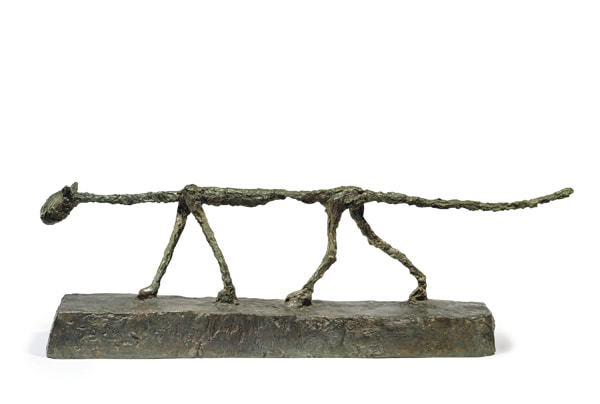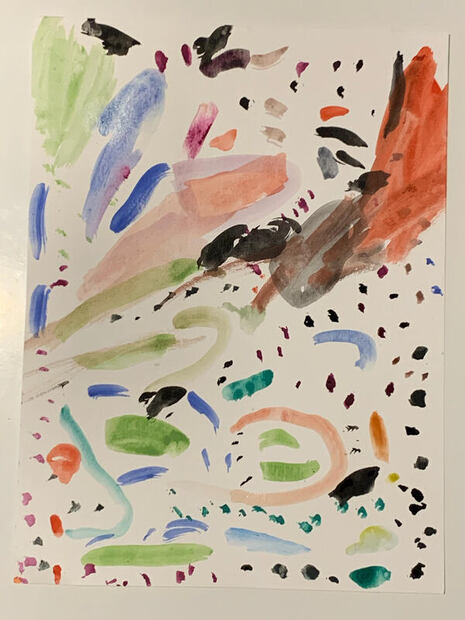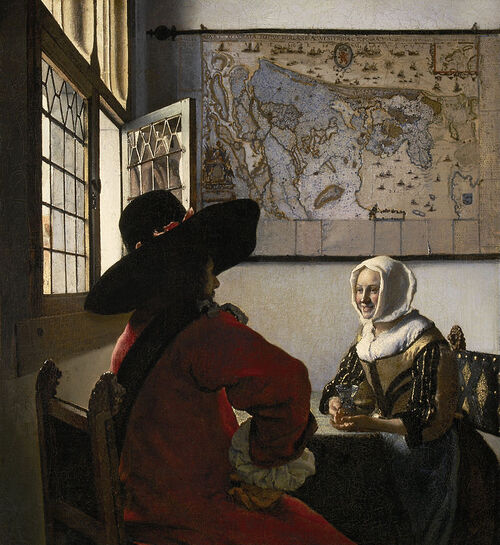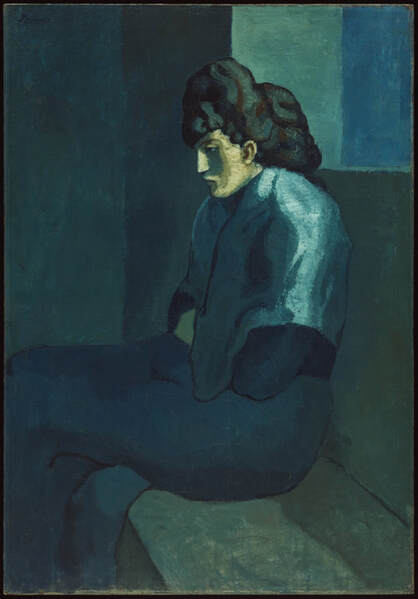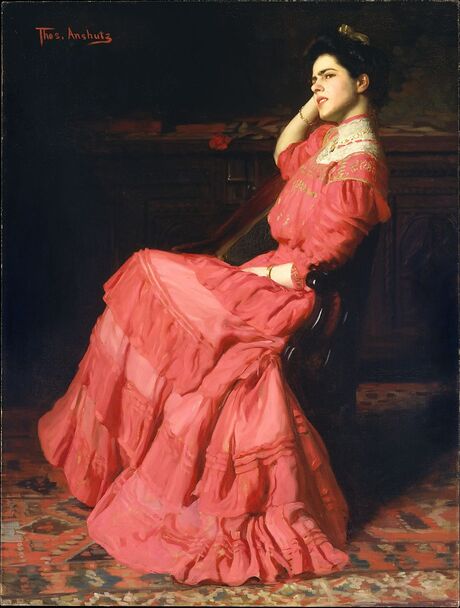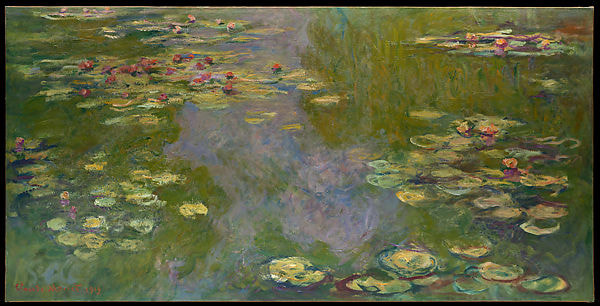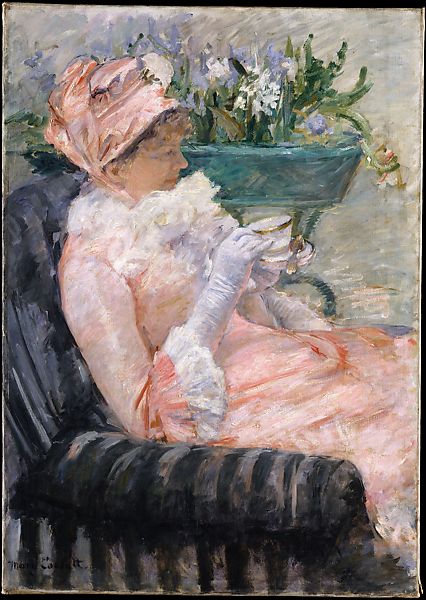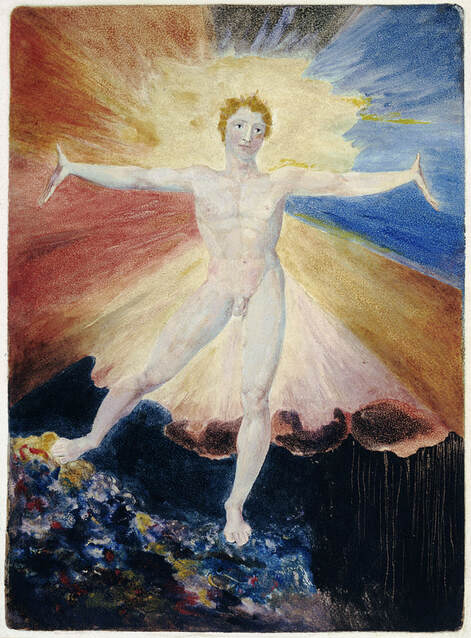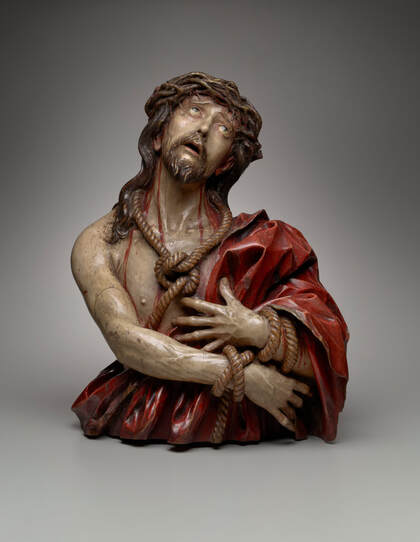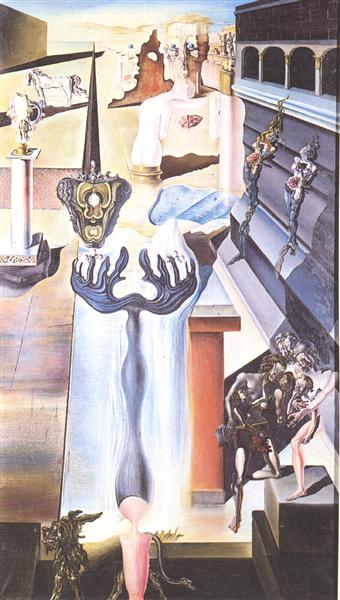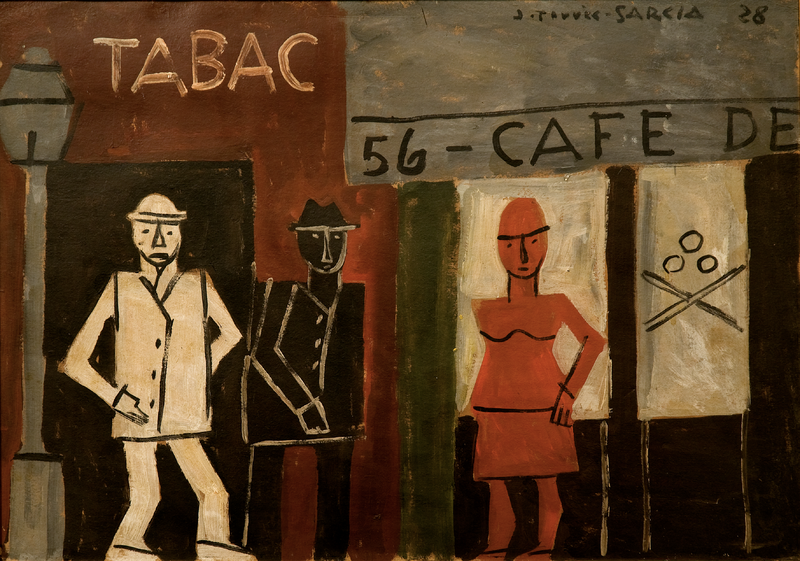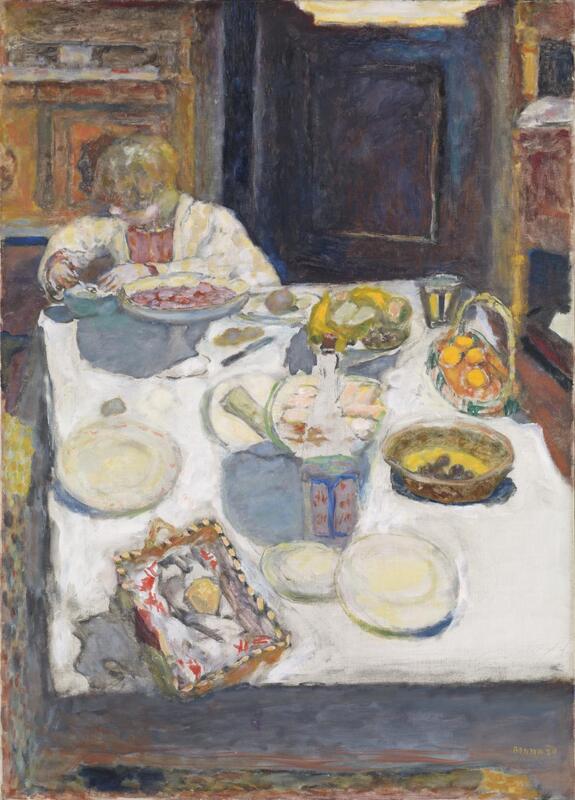|
Giacometti’s The Cat Taut predator lancing light, iron spine unflexed, steel stalk unyielding, ramrod a horizon of blast & storm, rebar lugged & ribbed, cast to crush thin skulls of common rats-- or critics. Dan MacIsaac Dan MacIsaac, a trial lawyer, served for ten years as a director on the Environmental Law Centre board at the University of Victoria. In 2017, Brick Books published his collection of poetry, Cries from the Ark. His poetry, fiction and verse translations have been published in a wide variety of literary magazines, including Stand, The Malahat Review, Arc, and The American Journal of Poetry. His poetry has received awards including the Foley Prize from America Magazine. Dan MacIsaac’s work has been short-listed for the Walrus Poetry Prize and the CBC Short Story Prize. His website, which includes links to his poetry published in online journals, is www.danmacisaac.com.
0 Comments
Marisa's Birthday Gift to Her Friend the Owl I “What could she have been thinking”, a facebook friend comments concerning the watercolour I’ve posted. At three years old minus one month, could she tell us…could she detach herself from the wash of colours to reflect on what decisions she’d made to place a figure or splash here and not there…how would she answer… the inverted “C”, for instance, and the affiliated dashes and dots that occupy the bottom half of the drawing paper. Brushed in light orange, it catches the eye first, half encapsulating two deft strokes running parallel to each other in opposing green whose route of escape—if they wished to escape-- is blocked at the entrance by a series of dots like black guards manning a blockade… was she thinking at all…I mean at that place when and where thinking is a function of putting aside or away a part of self—the part entangled with all that is out there: for instance, the mocking bird I’m hearing just now, proclaiming its right to be… the part of self we never fully know or wonder about, the ease of opening our eyes to admit the world into the wordless mind-- this continuance of see-er and seen forgotten or put aside by degrees in exchange for the piecing apart and attempt of putting together of a seamless vision no finger as yet has been laid upon with supporting and opposing evidence. II Her mother texted me to say she’d worked with total concentration—rare at any age—on what was coming to light in a wash of colours and when she’d finished, in response to her mother’s question, she answered “It’s a birthday gift for my friend the owl.” A series of black dots, alternating with haphazardly colored dashes, marks a pathway beginning at the bottom left and continuing below the inverted “C” (as if this figure were being carried or floated to the right) then spirals upward and around the “C” itself where, at its midway point, the path forks —the lesser path heading upward toward the top half of the water colour, while the main path circles the “C”, mirroring it in dots, where at a point further along, a dash is prolonged into one more inverted “C” in a light wash of opposing green. The black dots and coloured dashes proceed to the right then spiral upwards to divide the top half of the painting into two quadrants. The left quadrant shows long splashes in green, pink and blue, each separated from the others like islands adrift on a sea of white. Two deeply coloured splashes in dark grey and orange dominate the right quadrant contrasting with while balancing the left quadrant. Seen now in its entirety, the dots and dashes (some mirroring the inverted “C” while others pulling us to where they wish to go, coiling, curving around and seemingly carrying the three principle images) hold the watercolour together. The painting is complete: a gift to her friend the owl. III In Japan an artist may attempt a line a thousand, maybe a million times before he or she traces that first spontaneous line, the one the emptied mind perceives and frees to flow directly to the hand and fingers to the brush and onto the rice paper or before a lifeless son lies prone across the lap of the mourning mother…what steps must she repeat before the dancer is the dance? The canvas occupies the whole floor space (or so it seems) as Lee Krasner sits on a stool in the background as though watching over the process, while Jackson Pollack dribbles paint and sand onto the image struggling into being at his feet and under his straining body. Think (because without thought we are almost tool-less). Think of hot humid days along the southern coast of Eastern Long Island, of dreams drenched in alcohol, waking with the taste of dust in your mouth. Think of the bitterness and the joy: Montauk pointing to sunrise across the endlessly rocking ocean and home in the far Mid-West and how many dribbles of paint it takes, how from a plan, time after time delayed, altered, broken, and from chance a pattern emerges. I’ve seen graphs of the courses various sub-atomic particles may take when the atom is smashed in a particle accelerator and it occurred to me that Jackson Pollock was no abstract artist. He painted energy, the struggle to be…which was his soul… and this time without thought, see the watchful mother and the child painting the birthday gift for her friend the owl. IV I think (which is my compensation for a mind no longer emptied, perhaps my booby prize) is it energy that children paint—all the children: those who have mommies and daddies who love them; and the children locked in cages and those without food who haunt the border between two states neither of which loves them, and those, before they washed up, face down, along a beach with all the ocean’s detritus. But the steps, the thousand lines of ink, the dribbled paint…can for one moment the mind, emptied and mindful, open to the things of this world? Once and only once, a small pink rubber ball was batted or punched across a poor asphalt field—all the grinding city could afford-- and I, last to be chosen for a side —and often out of charity—perceived the perfect arc through air, and without thought became the catcher waiting at the end of its curve…part of its curve. It may happen. It happened. The gift is given. We are the owl. Vincent Spina Vincent Spina is from Brooklyn, NY. He is a retired Associate Professor of Spanish Language and South American Literature. Spina has published three books of poetry: OUTER BOROUGH: Pecan Grove Press, 2008; DIALOGUE: The Poet’s Press, 2015; THE SUMPTUOUS HILLS OF GULFPORT: Lamar University Literary Press, 2017. Recent poems have appeared In VOX POPULI, an online journal, VEXT, also online and THE BRIDGE LITERARY ARTS JOURNAL. About Suffering Henry Clay Frick before Vermeer's Officer and Laughing Girl Since childhood I haven't suffered in the flesh save eyestrain from hunching over a ledger in light dimmed to conserve oil. Sleep stopped my eyes' burning. I was happy when you were born. But now I'm forgetting your life, have only things: a quilt's singed corner, a once-worn dress, and a shuttlecock's gray feathers. Awkward, posed pictures recall memories of your sick bed, Easter services, a September lawn game. Only in memory survives the image of you coughing up blood. There your bones ratchet beneath barely-concealing skin. Speechless doctors watch. In their breaths, I hear she'll on the inhale. On the exhale, die. She'll die. She'll die. I believe you are seen by those who glimpse beyond this world to make art with scenes alive in God’s world, like this laughing girl the age you would be now. Vermeer set her where windowed sunlight gestures to the room's vanishing point. She rises from the shadows of her dress. The officer's profile hints at facial hair. If he turned to face me, I'd see his beard creep from where there is no skin, half his face only skull, jagged where teeth meet bone. You smile because this is beautiful to you, but your—that girl’s—her perspective hurts me. You weren't meant to reach her age, so I offer you enchanted smiles like this girl's, stretching for light beyond this window pane. Gary Leising Gary Leising is the author of the book, The Alp at the End of My Street, from Brick Road Poetry Press (2014). He has also published three poetry chapbooks: The Girl with the JAKE Tattoo (Two of Cups Press, 2015), Temple of Bones (Finishing Line Press, 2013), and Fastened to a Dying Animal (Pudding House, 2010) He lives in Clinton, New York, with his wife and two sons, where he teaches creative writing and poetry as a professor of English. Melancholy Woman the whore of those with syphilis the prison Saint Lazare the same of Pablo ached she would surely wither the ache in her unlocked unchecked left rotting soon the drape of blue her chiseled face to drop away not yet today firm reposed the face Raimondi, Manet knew—“artists steal” Pablo knew this face and recently another from Montmartre the same eternal —he wrote "the artist & his model" turn your back but stay in view at the same time (now look away, anything else confuses) … i separate day from night and the starless sky from the empty heart-- the whore the model with syphilis imprisoned like the other all the others stolen away in a prison cell the window behind her painted without bars Leland James Leland James is the author of five poetry collections, four children’s books in verse, and a book on creative writing and poetry craft. He has published over three hundred poems in poetry venues worldwide including Rattle, The Lyric, London Magazine, The London Reader, The South Carolina Review, The Spoon River Poetry Review, New Millennium Writings, The American Poetry Review, Acumen, Carillon Magazine, The Dawntreader, The Haiku Quarterly, Taj Mahal Review, The American Cowboy, and The Ekphrastic Review. Leland was the winner of The UK’s Aesthetica Creative Writing Award and the Writer’s Forum Short Poem contest. In the USA, Leland has won The Little Red Tree International Poetry Prize, the Portland Pen Poetry Contest, and was the winner of an Atlanta Review International Publication Prize. Runners-up and Honors: the Sequestrum Editor's Reprint Awards, the Fish International Poetry Prize in Ireland, the Welsh International Poetry Prize, London Magazine Poetry Contest, and Aesthetica Magazine Creative Writing Award for Poetry. Honors: the Bridport Prize, Morton Marr, The Southwest Review, and many others. Leland has been featured in Ted Kooser’s American Life in Poetry and was nominated for a Pushcart Prize. www.lelandjamespoet.com https://www.poetryfoundation.org/poets/leland-james Kansas was the first state to completely close its school buildings. This drastic shift from face-to-face teaching to digital lessons was a shock for everyone, and it required a lot of quick creativity. Tina McIver, ELA teacher at Council Grove Jr-Sr High School, had to transform her regular English courses and her Creative Writing class. Creative Writing, a class that is normally very high-energy and interactive, had to be reduced to videos and Google Slides. Mrs. McIver decided to try out something new with her students. After doing intensive research into ekphrastic poetry, she launched a series of lessons that would ultimately end in each student selecting a piece of artwork to use as the basis for an ekphrastic poem. The video “Vincent” by Don McLean was used as an introductory piece for the lessons. From there, students analyzed figurative language and word choice in other poems and spent some time “visiting” art museums (virtually) to get an idea of what type of artwork they enjoyed. Then, they selected a piece of art and got to work. Over the course of the next week, students met virtually with Mrs. McIver to discuss their poems and consider modifications and edits that might make the poems even better. Finally, students combined their poems with the artwork and finished their submissions. A Woman and A Rose She stares out the window, Not because it makes the lighting better, But because everything out there Is much more interesting Than the dull thoughts of a painter Who only refers to women as flowers. A rose! She hopes you mean the dress. She can see the resemblance. It’s stiff, prickly, And highly overrated. She prefers daisies anyway. Never before has she felt so trapped In her own home. But alas, It’s not her house, But her father’s. At least the chair is comfortable. What she would give To be out the window, down the road, And off! On a grand adventure. That’s what all the books say, anyway. What she would give, To travel the world. To learn, To read, To write. And she’s sure she could Paint better than this man. But every day she finds herself Back in this house Of gold and of red. It’s quite exquisite, Really, She should think herself lucky. Lucky to have this life, Lucky to be drawn By this man. Who can’t tell the difference between A woman, And a rose. Carissa Carissa (15) likes cows and Chris LeDoux. The Beauty of Lilies Lily pads glisten. Lavender and blush petals float silently, in peace. The light of a full day shines bright. Lily pads, petals, and lush flowers glow from below. The frog’s crooooaaak. The wind slowly swishes across the sparkling water. A willow drapes over the pond, leaves sweep the water. Ripples dance across the water. Dusk sets in. Soft silk lilies close for the night, to reopen in the sun when birds peeeeep, And the water sees the light of day. Eden Eden (16) loves the beach and raspberries. Her Facial Features Fake smiles circling the room With “Good Afternoons” And friendly gestures Cheeky kisses and handshakes Pinky up, With a white teacup. Ruffled pink and white dress. Striped black and grey chair. Someone is watching her. But, she is thinking of something else Perhaps about the party? No. Perhaps about her husband? No. Curly headed and slightly slouched down, next to a tray of flowers she sees the butler staring. Giving him “The look,” she notices something. Fake smiles run the room With “Good Afternoons” And friendly gestures Cheeky kisses and handshakes She is thinking of her great life, full of potential and possibility. Knowing she will live her life, to the fullest as she can. Michelle Michelle (16) likes ranching and photography. The Last Meal Well, this is it I'd never thought that I Would find myself in the lion's pit. I don't belong here in this vile hole of death I didn't do anything, and the worst part: There's no way out. These majestic, yet ferocious, cats aren't paying too much mind yet But a few are beginning to circle each other, just outside of the crisp sunlight pouring in. Perhaps they are fighting over which will get to finish me off. Only if that hole was a bit closer, then I could get the freedom I deserve But it’s just out of reach. I have tried everything, but it's no use. I am screaming for someone to help me, but no one cares. As utterly terrifying as this moment is I can only wonder, What was the last thing I drank? Or the last meal I had? I can't remember, but I bet it was great. But now that there is virtually no way out, The only thing crossing my mind is That I'm about to be the last meal I'll ever attend. Kaleb Kaleb (16) likes anime and his friends. Self-Portrait with Blake My body was born from infernal metal, made man. Bone black and madder lake, vermilion, yellow ocher, and Prussian blues. Beyond all this I will die for you, and I am glad for it. My arms stay splaying, outstretched as a dancing Leonardo, I sing from my spire flailing like a tarot fool. A bastard angel. I am the invention of zero, burning in my holy place, awakened. I am the little creator and my happiness is immense. Beneath the starlight the sun radiates my joy. I have no pretense of mind. I bray to the wind from god's symmetry designed. Daniel Haskin Daniel Haskin is a Buffalo NY based poet, writer, musician, artist, and illustrator. His chapbooks of poetry include Amnesia, Past Life Invisible, The Shallow Sea, and his newly published work, Picture Book: Love, Death Time, and Assorted Ekphrasis. He has also been published in various newspapers, and international journals. Saffron Honey Hugs For behold, blood cometh from every pore, so great shall be his anguish for the wickedness and the abominations of his people. Mosiah 3:7 He hugs me. And oh, I’m home. He drapes me around his body. I spread myself across his shoulder, shying off of his elbow. I’m a crimson red: symbolic. Similar to the colour of his blood. Sticky strings scrape his chafed skin creating streaks of ribbon Leeching sacred drops of saffron honey, His skin still gleams white White and righteous Ton-heavy with sorrow. His sclera rolls back Syrian Christ Thorns dig- dig and dig Finding spaces in the flesh of his scalp A scream, a yell, a cry for help Yet the sole answer he receives Comes suffocated with leather, Their endless tails haul metal spheres in silt The crack of a whip The sound of brutality Voice of humiliation Each step: the equivalent to balls of lead Burdened, bearing He stares at the sky, soggy with tears He knows His plan. Knows His truth His sternum vibrates against his dermis, Shaking me too, And though I wrinkle I crease I sin He never seizes me with disgust. His eyes swell with empathy: adoration Towards me, for me Sagging in his arms, He carries me, As he carries your sins Bleeding from every pore Living your sorrows and afflictions Each of his shoulders serving each of your legs They call it The atonement The Atonement of Jesus Christ Amrutha Obulasetty
Amrutha Obulasetty is a freshman at Utah State University, majoring in Psychology and English with an emphasis in Creative Writing, and she is a recently published author for the University magazine, Sink Hollow. Amrutha lives in Chandler, Arizona and is a proud member of the Utah State Speech and Debate team, the Leadership Society of Arizona, and a grateful volunteer for ASSERT and Teen Lifeline. Dali’s Invisible Man at Home Truth is a sword that slices along two edges—for mercy, for justice; lovely as spring blossoms, yet able to cut. It’s certainly not what he says, what he does, deceiving innocents at a river bank usually near dusk; not who he says he is in the dark where he fails to see any difference. Because tonight, as truth sharpens at least one edge, he scrambles for the invisible cloak of Father reading to his child a bedtime story of rainbow promises in skies now clear of storms; the invisible ware of Husband trying to resuscitate his coding marriage—brush of skin, vintage wine under early evening stars. How surprising when all to him seems like wrapping arthritic knees in silken bands against the threat of gale-force winds. Because tonight, he sees the yellow clouds shaping his hair; ruins scattered across barren landscape forming his upper torso, the panic striking face and lash-less eyes; waterfalls creating the legs that carried him to and from a secret rendezvous where he broke it off with a little red dress, tongue-ring clicking against her teeth. Arm roping her shoulders, he sold the shapely, short-lived lie of love that doesn’t last. She bought it, only to end up with lean fingers in a lion’s clutch at nothing by the lapping waves. Stuns him, though, when her tears haunted his trek home … where now he wades the disquieting end of trying to hide from a tyranny of conscience not the Father nor the Husband ever knew he had. Olga Dugan Olga Dugan is a Cave Canem poet from Philadelphia, PA. Nominated for Best of the Net and Pushcart Prizes, her award-winning poems appear in The Southern Quarterly, Virga, Kweli, E-Verse Radio, The Sunlight Press, Typehouse Literary Magazine, Peacock Journal, Origins, Cave Canem: XIII, The Red Moon Anthology of English-Language Haiku, Tipton Poetry, and other publications. Articles on poetry and culture appear in The Journal of African American History, The North Star, and Emory University's “Meet the Fellows.” To Joaquin Torres Garcia Regarding Pintura As Your Call To Constructivism Was Nearing... Your fleeting dream -- art undefined by label someone else designed -- I daresay you had here achieved in Paris real and yet perceived as absent depth in flattened view with somber, planar beings who appear collaged to stagnant scene, each by the others never seen, of flesh and clothing indistinct unclearly to your purpose linked unless, perhaps, to have us see that urban anonymity is, rather than the blessing, curse of being polar and diverse. Portly Bard Portly Bard: Old man. Ekphrastic fan. Prefers to craft with sole intent of verse becoming complement... ...and by such homage being lent... ideally also compliment. ** The Longings of a Separate Self Leaving the tabac from an innocuous errand taken up at perhaps an odd hour. Who can predict when ordinary needs for a stamp, a smoke, a lotto ticket, a magazine, or even a small candy, will strike. Walking back home I see her, at her usual night time sentry post, woman in red, whore of the night, temptation. One side of me sees her as an expense my soul cannot afford, yet, a part of me wants to stop to discover the exotic revel in her flame, bring flash of colour into my drab life. Only part of me wants this—I think-- at least for now. Joan Leotta Joan Leotta is a frequent contributer to The Ekphrastic Review. She loves writing ekphrastic poetry and other forms. She also writes essays, newspaper and magazine articles, short fiction, books, and even a play. Her blog, joanleottarecipes.com, offers recipes for dishes mentioned in the Inspector Montalbano mystery series. In addition, she performs tales of food, fmaily, and strong women. In the fall, she will debut her one woman show, Louisa May Alcott, Civil War Nurse. ** Abstract Man Ten years before Tradition of the Abstract Man he paints two men in contrast, one light, one dark, a tobacco sign above, and a woman beside the image of a pool parlor. He’s in Paris, was in New York, and city life influences a mind full of signs and symbols, arrows and buildings, letters in Spanish with the simple title Painting reserving complexity for handmade books, taking commerce into art the way a banner of a bare Coppertone behind is pulled by a twin-engine plane along beaches over and over in poems about my youth. This painting is in motion, different than Nighthawks, that scene of Edward Hopper that came later, the tension of men and women created in a garden brought to the city by a revolution industrial. There is darkness under the streetlights. Kyle Laws Kyle Laws is based out of the Arts Alliance Studios Community in Pueblo, CO where she directs Line/Circle: Women Poets in Performance. Her collections include Ride the Pink Horse (Stubborn Mule Press, 2019), Faces of Fishing Creek (Middle Creek Publishing, 2018), This Town: Poems of Correspondence with Jared Smith (Liquid Light Press, 2017), So Bright to Blind (Five Oaks Press, 2015), and Wildwood (Lummox Press, 2014). With eight nominations for a Pushcart Prize, her poems and essays have appeared in magazines and anthologies in the U.S., U.K., Canada, and Germany. She is the editor and publisher of Casa de Cinco Hermanas Press. ** Waiting She is not quite refined She is not quite a trollop Unchaperoned she finds herself in a place she ought not to be The café has closed, where will she go? Carole Mertz Carole Mertz has reviewed poetry collections at Main Street Rag, Eclectica, Copperfield Review, The Compulsive Reader, and elsewhere. She finds ekphrastics among the most enjoyable approaches. Carole plays piano, paints, and rides a bike in Parma, Ohio, where she resides with her husband. ** Three Stanzas Standing on the Sidewalk Contrasts begin this monochrome world. A canvas: paint. black man red woman white man addicted to preconception like the first man who counted his money in hieroglyphics from beyond the grave or the hand reaching in its pocket for cigarettes. A canvas: paint. The woman waits. The streetlamp is concrete, not giving anything to the progression beneath which is as natural as 6 following 5 in any nameless café or the insatiable need to define with words and colours. Emerging from the threshold the white man’s eyes receive the street, his gaze my gaze, a canvas painted, his feet elevated, his coat armoured against the wind in a way the blankness cannot defend. Wilson Taylor Wilson Taylor is a poet living in New York City. Most recently his work landed in The Merrimack Review; all of his writing can be found online at wilsontaylorwrites.wordpress.com. ** So Close But So Far Away Five before seven most every Monday thru Friday come wet or dry cold or warm in the dark or in light, the lady in red and the man in black stand next me in line awaiting to breakfast at Café de Pintura. We don’t say a word avoiding eye to eye contact observe passing traffic growling autos silent cycles and early morning joggers as fluorescents glow white while glancing at our watches to listen for the door unlock promptly on seven. I don’t know the duo’s names wouldn’t recognise them on the Metro have no idea of their back stories or the apartments they call home though often wonder or imagine who they are where they work whether they are in love or if they have been hurt. But for now we social distance keeping so far apart he wears a white face mask she wraps round a silk scarf, red as we order our breakfast at Café de Pintura with doors bolted shut for “Only Window Service” displayed in three tongues. Alun Robert Alun Robert is a prolific creator of lyrical verse. Of late, he has achieved success in poetry competitions and featured in international literary magazines, anthologies and on the web. He particularly enjoys ekphrastic challenges. In 2019, he was a Featured Writer of the Federation of Writers Scotland. ** Our City The sirens, melodic, jarring, broke through our dreams, warned of early rising waters, brown, shadowed, sent damp- raw tobacco scents to steam up the yellowing papered walls in our rooms. The cafe’s windows, low, grey, later framed us as we shelled cranberry and runner beans, their pearly pigments pouring rich over beige ceramic platters at our meagre, common meals. There was the aromatic blend of pecans, cinnamon, of car fumes and loud voices drifting through each time the cafe’s front doors shifted. Sometimes, a round of silences surrounding the negative spaces and solitary streetlamp along our stretch of the rue Saint-Honoré floated in. We snuck cupfuls of blended orange aperitif, were warmed enough to enlighten our shaded shadowed sorrowful souls with the hope that we might again meet one day momentarily under another crested awning in our beloved city. May that moment be a promise of healing, redemption, and not just merely a shifting perspective from another dream. J. Adams Lagana J. Adams Lagana’s poetry has previously appeared in Atlanta Review, Naugatuck River Review, the Paterson Literary Review, and others. She is the co-editor of River Heron Review and resides with her family in Bucks County, Pennsylvania. jlagana.com ** Meeting at Night after Eavan Boland A packet of cigarettes to sit snug in the pocket. (This on a monochrome stroll towards that café. In the Marais.) She’s there, they see, under the awning. Burnt up. A flare of paint. Their talk turns to where they’re going. This trio. What route they should take. Her question is which of these two to trust, given their black-or-whiteness. All’s even. So go nowhere. Stay right here. Watch the night disappear and speak rarely: all buy drinks. An impasse. Laughter in the bars. And in the past. Michael Caines Michael Caines was longlisted for this year's National Poetry Competition and highly commended in the Sentinel Literary Quarterly competition for winter 2019 ** Invitation Returned I. Dear Joaquin Your building blocks of another world Reflect my someone-else-ness Would that I knew your Montevideo, Catalan, shared visits through Barcelona, that I could see what you have seen, paint with words what colours speak. II. Thank you Simplified bare but not barren I long for green, the verdant you left out. Insistent hues wrap the world like brown paper packages tied up with pedestrian stares. I feel your challenge to wander the streets I once enjoyed. III. Saludos, Goodbye You tell me to move but let the eyes linger. Stop among the billiards, step out of the rain. Dance the city but don’t let it show We know you know, you know we see the places we would rather be. K. M. Huber K. M. Huber’s work is coloured by growing up in the USA’s Pacific Northwest, a decade in NYC, and many years living in South America. Her stories and poems have appeared in Earth Island Journal, Diner, McGuffin, Post Road, Pydras Review and ViceVersa among others. She has recently moved to Tennessee with her Peruvian husband and her novel of sixth-century Nazca is looking for a home. ** Picture Problem In math terms It is easy 1+1+1 Or 2+1 Or 1+2 Think of it As a word problem In this word problem There is a 1926 DeSoto Sedan The seating could happily seat Three across the front One of the three or Each one of the three Could take turns driving Or, if it is a long journey, One driving, one passenger front, one seated behind Or at a passionate rest stop Three across the back If the journey Is as long and as difficult As love often is There is room for One or two In the trunk Remember some one must drive the getaway John Stickney John Stickney is a poet and writer originally from Cleveland, Ohio, now living in the Wilmington NC area. ** Three Cherita and Cherita Terbalik Poems in response to Joaquin Torres Garcia 1. Remember when we were all coffee grounds on a Saturday night made more bitter clumped together scatter spent by dawn? 2. She knew a door for what it was– not portal but promise. In the street sign spotlight her winning smile (never mind fingers crossed). 3. Midnight puddles shine solid gold cufflinks, princess cuts– How I miss the simple business of buttons doing their duty! Emily Reid Green Emily Reid Green's poetry has appeared in various publications, including: Gravel, Khroma Magazine, 1932 Quarterly, Moon Magazine, and The Ekphrastic Review. Her first chapbook Still Speak was published earlier this year by Writing Knights Press. She has also been a sponsored poet with Tiferet Journal and their annual poem-a-thon. Emily lives in Toledo, Ohio with her family. ** 56 Café Lima, Peru Lima, Peru, antipodean to Bangkok, Thailand. Lima. Gentle girls. Invisible. They find you. Mi amor. Mi rey. Want to be happy? A tunnel would be leading from Lima’s Plaza de Armas down, down, baja, straight to Bangkok, to Pat Phong and the girl who can blow smoke rings down under. Dollars, dollars. Want to be happy? In America everything so big, no? Oh my! H̄ıỵ̀ ! Rose Mary Boehm A German-born UK national, Rose Mary Boehm lives and works in Lima, Peru. Author of two novels and Tangents, a full-length poetry collection published in the UK in 2011, She’s three times winner of the Goodreads monthly competition. Recent poetry collections: From the Ruhr to Somewhere Near Dresden 1939-1949: A Child’s Journey, and Peru Blues or Lady Gaga Won’t Be Back. Her latest full-length poetry MS, The Rain Girl, will be published by Chaffinch Press in 2020. ** Obituaries The language of death is forbidden. The language of dying is swallowed like a sword, the inside bleeding, the inside covered with prayers--all the silence entombed in itself. The language of deceased is like shrouded bones-- hollow, clinging to the remains-- the before of never. The language of gone is a call without a response, so loud it can’t be heard. The language of absence is on the other side-- no matter which way you turn it. Kerfe Roig Kerfe Roig plays with words and images in her apartment in NYC. You can see the results on her blog https://kblog.blog/. ** Memory of the Fleeing I stroll past cafes and remember your wide smile across a small table, fit my feet between the stones of a foreign street we once conquered together, glimpse the palaces and plazas whose difficult pronunciations I’ve replaced with your name I feel the beach breeze of Montevideo, I watch the moon rise behind Punta Ballena, I remember the sight of your plane, shrinking as it distanced –– enough for me to hide it behind my thumb I soak in the hot air of Uruguay nights, I learn what it means to have come and gone, I thank the South American wind for bringing us together; I curse the promise of America for carrying you away. Niko Malouf Niko Malouf is a teenager living in Los Angeles. "I enjoy writing about the things that surround me, stimulate me, the events of my adolescence as well as the happenings of the world. I hope to share my experiences and perspective with others and inspire them to do the same." ** La java des petits diables Ils font la java devant le bar tabac et tabassent les gars à qui la gueule leur déplaît, et les filles faciles leur emboitent le pas. Tu montes, chérie ? Elle monte, ils montent, ils montent tous les trois et n’amènent aucune nouvelle ni a Gand ni a Aix, car la bête a deux dos, depuis la nuit des temps, beugle toujours, connaît tout, blasée. Tu montes, chérie ? Et la rue remplie d’ombres du phare sur la mer, appelle les marins et les marins d’eaux douce de faire la java dans les chambres d’hôtels, louées à l’heure, avec filles faciles, qui guettent les clients depuis la porte, étoiles fatiguées, du Bar du Port. Un chat passe, la nuit chante un hymne à l’amour, sur un brin d’air marin et un parfum fade et l’odeur rance de vieux mégots. Lost Boys and Girls They ruckus in front of the Bar du Port beat up the kids whose faces don’t fit and the painted girls sidle up close, Tu montes, chérie? So they gallop, she gallops, they gallop all three, and they bring no good news not to Ghent nor Aix, for the beast with two backs, since the dawn of time knows it all, seen everything, yawns as it moans, Tu montes, chérie? And the lights of the port fill with shadows the streets, a beacon draws sailors and landsmen the same, to kick up a ruckus in hotel rooms, let by the hour, with painted girls who watch for trade from the bar tabac door, red star-glitter of the Bar du Port. A cat slopes past, night sings a hymn to love on the sea air of cheap perfume and the stale reek of old dog ends. Jane Dougherty Jane Dougherty lives and works in southwest France. Her poems and stories have been published in magazines and journals including Ogham Stone, Hedgerow Journal, Visual Verse, ink sweat and tears, Eye to the Telescope, Nightingale & Sparrow, the Drabble, Lucent Dreaming and The Ekphrastic Review. She has a well-stocked blog at https://janedougherty.wordpress.com/ ** Joaquín Torres-García’s Un Caballito Childhood, terrain of nightmares, old folktales about witches and demons monochrome geometric shapes and figures in the dark behind the Iron Curtain the land of your people swoop across colours in grey an old hag sitting on your cot while you sleep a mare peeks from behind a door. It slides down. Flies under the table. A big lump play taking the Thanatos out of the Eros white rocking horse, wood put together with dowel and peg, painted over rough texture, carved and incised. Simple shape, a red saddle, black pigments. Caricature-like surrealism your father receives censored letters aunts, uncles, and cousins you’ve never met. Muted amaranth pink the sky in Earth’s shadow. Ilona Martonfi Ilona Martonfi is an editor, poet, curator, advocate and activist. Author of four poetry books, the most recent collection is Salt Bride (Inanna, 2019). Forthcoming, The Tempest (Inanna, 2021). Writes in journals, anthologies, and six chapbooks. Her poem “Dachau on a Rainy Day” was nominated for the 2018 Pushcart Prize. Artistic director of Visual Arts Centre Reading Series and Argo Bookshop Reading Series. QWF 2010 Community Award. ** Whodunit Through the dark door of the hidden underworld a man and his shadow slip beside the spoon-street-lamp sneaking snuff into their pockets outside a tobacco shop. A lady of the night curves a blood-orange dress she hustles in the light of a cafe window where pool players shoot billiards. I spied three cut-outs in a painted collage looking out at me observing them knowing that I knew what they did. I caught them in the act, their button eyes startled on a murky night in Uruguay in black brown grey. Tanya Adèle Koehnke Tanya Adèle Koehnke is a member of the Scarborough Poetry Club. Tanya’s ekphrastic poems appear in The Canvas and Big Arts Book. Tanya taught critical writing about the visual arts at the Ontario College of Art & Design University (OCADU). Tanya also has a background in arts journalism. ** In Paris, 1928 It was the year for roaring in Paris. Smoky cafés for flapping, emancipating, cabarets for toe-tapping. It was the year of androgyny, rebellion, extravagance, a stock-market bubble. Iconoclastic artists—their brushes beastly with colour—cubed the human body, lingered over absinthe, late-night tête-à-têtes. Contentious debates, like mental tugs-of-war, pitted classical against avant-garde. It was the year of Duesenbergs, Bugattis, Peugeot Landaulets, hot cars swerving around horses and carriages, madmen with new toys. Flâneurs idly strolled the grands boulevards, the chestnut shade of the Tuileries. It was the year for high fashion, Coco Chanel, pearl necklaces, wide lapels and cricket jackets, white or black, the homburg, bowler, cloche. Artists caught between reason and feeling, figuration and abstraction. It was the year for thoughts of the circle and the square. For the grid. For the voice of Joaquin Torres Garcia, artist, theoretician, unifier. For the mystical and the material. Sandi Stromberg Sandi Stromberg lived more than 20 years in Europe, but, alas, never in Paris. She would like to have experienced the City of Lights in 1928, but probably not in 1929! ** The Beholder She had always been able to see the corona around the head and had made her living that way for awhile, traveling from fair to fair reading auras and fortunes, telling people where there were breaks in the envelope around them and how to fix them, who to ask for help and where they could be found. And while those days were long gone and she had a proper job and a mortgage again now, the ability to see still stood close by her throughout her days, like the patience of underlings waiting for attention so they might have a word. She appreciated this of course. An underling herself, she knew something about waiting steadfast at the gate. So this sort of peace between them, her ability and her, this sort of agreement around energetic chalk marks where one began and the other ended, had become part of the measure of her days. And if she noticed an aura, she took note of it for her own guidance but rarely remarked on it to its owner, knowing the low tolerance for this type of thing in the community she lived in now. When the virus started to spread and the lockdowns began, she began to see things differently. At first, she noticed light glaring around the heads of those she encountered on the street and a few holes near the heart where their auras had been pierced and attacked. These encounters were few and at a recommended distance, so she couldn’t be completely sure of what she was seeing. She didn’t think too much about them really, having concerns of her own now over survival. But soon this shifted along with the government’s warnings on the new iterations the virus was taking and further precautions that would be needed. She had begun to volunteer at the food pantry and animal shelter preparing boxes of foods to fill the hundreds of cars on line for hours to receive them. There was no work now. Only need. She and her coworkers were gloved and masked and mostly silent, though furiously busy. And while this made them a little harder to get to know, she could still read them. The light around their heads began to recede and spill down the body as the weeks went on, forming shapes—the outline of a trumpet, a chandelier, a bell—instead of their typical egg shape. She herself could no longer tell where her own chalk lines began and ended. All she could do was see, and she knew patience was at its end and her ability had come forward to stay. And so she watched as the bodies stretched out to fill their new light shapes. Faces elongated vertically looking like cornices at the top of buildings while the body below flared into the shape of a chalet or narrowed into a bassoon or kayak or any shape at all that revealed the present condition of the heart of its owner. All these people shapes tumbled together as each day unfolded— like a kaleidoscope congregating then into patterns. Within each pattern she saw the sickled moon face of the virus and the domino path it planned to follow. And then she had to say it. Had to tell them what she saw. The geography of it—where plates rubbed and bucked against one another; where silt slowly dropped off the water’s edge floating down through to the bottom of the water; what was happening or going to happen inside them soon. Eventually they would build her right into the town’s wall—an anchoress as their own personal gyroscope for the days ahead—and would feed her through her window, plaiting her white hair that reached her feet and bringing her sweet smelling cream to rub into her skin. But first it was only wonder, blinking questions “Tell me my fortune.” “Will I?” “Is there?” “What can you see?” The mind being the box that it is and need, so much need, being insatiable and therefore, like an onion, without a core. Some people did survive. She did. And while their aura was never truly rounded again, it was no longer as angular, the sickle shape of the virus having gone back to the moon after all while the sun, the glorious sun, radiated again round and ready shouting with life. But for those who didn’t, who kept their odd geometry as they climbed back up to the moon, she raised her face at night in the window of her cell under the stars and recited their names and remembered for hours until moonlight spilled down and the earth was briefly quiet. Kate Bowers Kate is a Pittsburgh based writer who works for a large, urban school system by day and practices yoga, pottery, and improv comedy at night. She has been published previously in The Ekphrastic Review. ** Second Light “There is always colour, it has yet to become light.” Pierre Bonnard He liked white tables, their surfaces flat and square. Objects of daily life moved into the painting randomly like cats, choosing their own places. Each cup or sugar bowl or mustard-coloured pitcher with a line of green clovers around the lip settled into the canvas as if it had forgotten what it was, remembering only now the part of itself that conversed with light, vibrating and humming energies of ochre, blue, white, orange. Around the room any available frame became willingly a painting within a painting – window, door, mirror, the yellow panel of a tablecloth on which a platter, regally white and glowing, sat. In these paintings his Marthe stood at the edge, blending into a chair or partially hidden by a Japanese screen, or behind a table quietly spooning food into a dish for the small brown dachshund. Earlier, there had been Marthe at her bath, violet and soft, but in later years he began painting her bristling with hot colours as she bent, in her quiet way, over a breakfast bowl. The blue electric flowers from the wallpaper reflected in her hair, the vibrations out of control. When she was gone, the paintings grew furious, steeped in wild reds. Windows became plunging vertical lines and table legs refused perspective. The days were hot colors, the thick lonely pleasure of viridian, lemon cadmium, Venetian red, where tabletops could not be contained except by their colour. The wallpaper with its border of bold black stripes, much like those on Marthe’s blouse so long ago, constructed the only solid lines in this part of his life, where wide platters might reflect a hive of gold dashes at the window behind the unused blue cup, the quiet white bowl. Rebecca Ellis Rebecca Ellis lives in southern Illinois. Her poems can be found in Bellevue Literary Review, The American Journal of Poetry, Naugatuck River Review, Sugar Mule, Sweet, Prairie Schooner, Natural Bridge, Adanna, RHINO, and Crab Creek Review. She is a Master Naturalist through the University of Illinois Extension Service, and has learned to be equally at home with mallards and mergansers and poems. |
The Ekphrastic Review
COOKIES/PRIVACY
This site uses cookies to deliver your best navigation experience this time and next. Continuing here means you consent to cookies. Thank you. Join us on Facebook:
Tickled Pink Contest
April 2024
|
